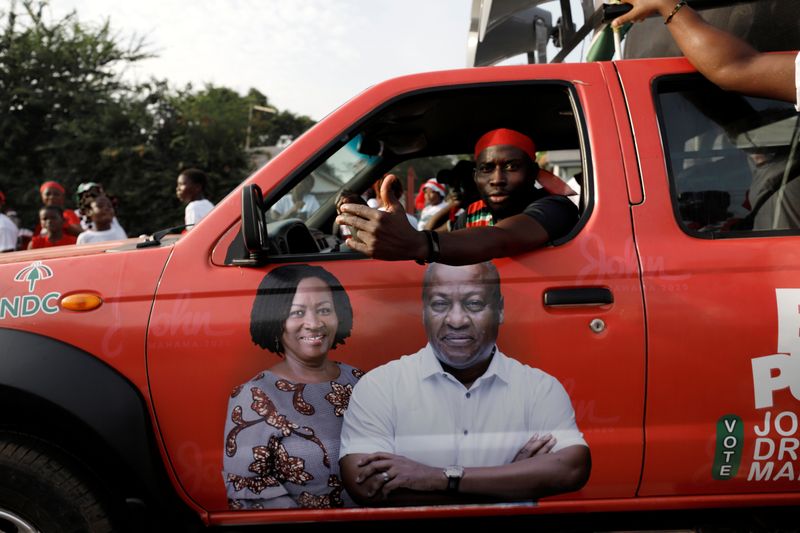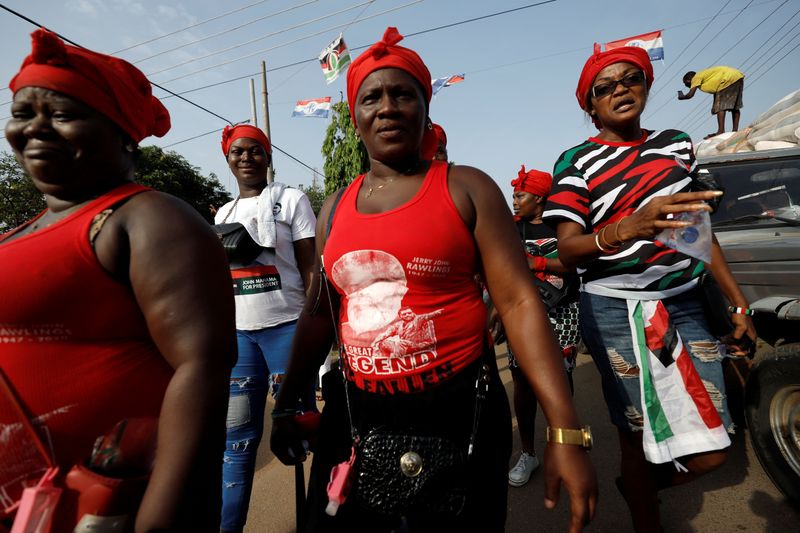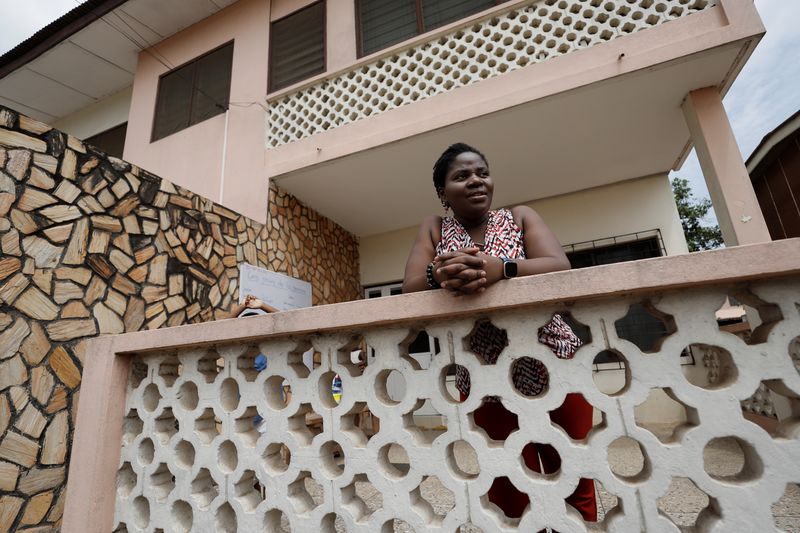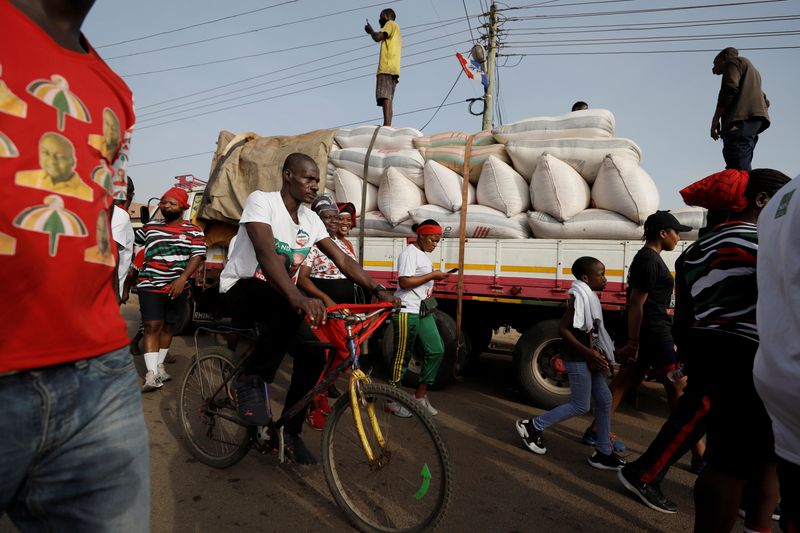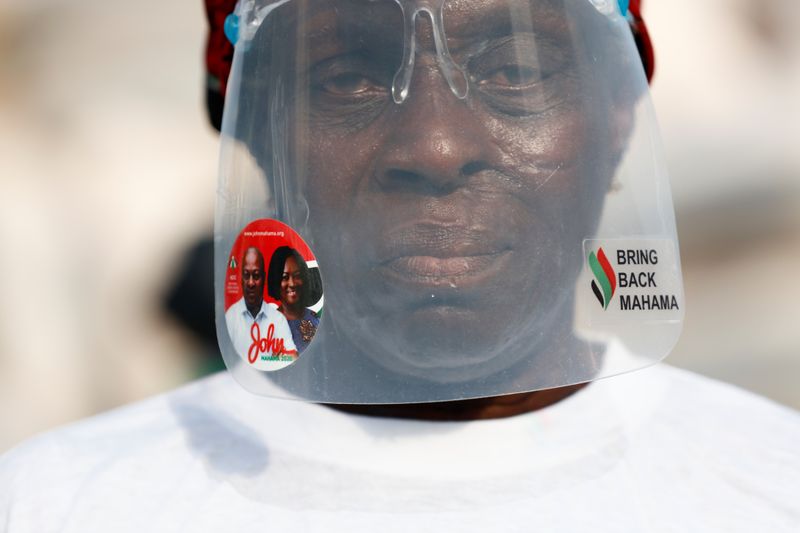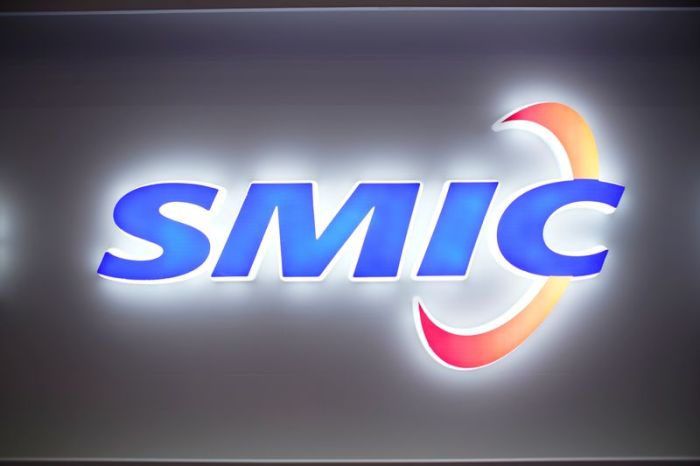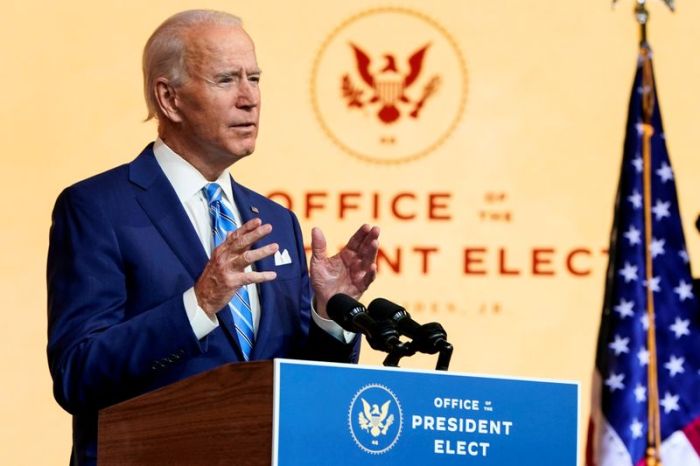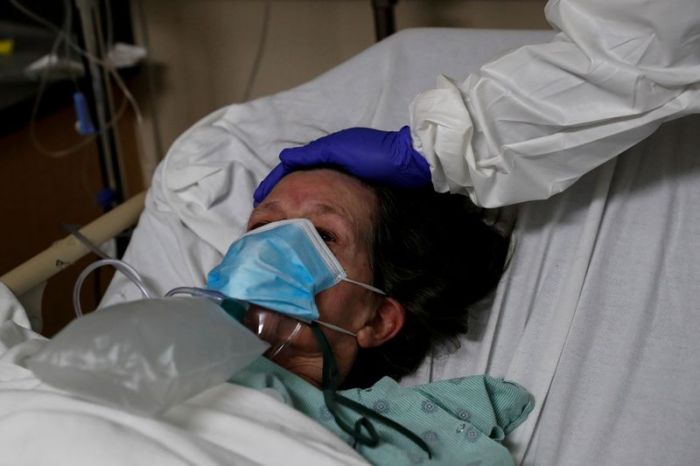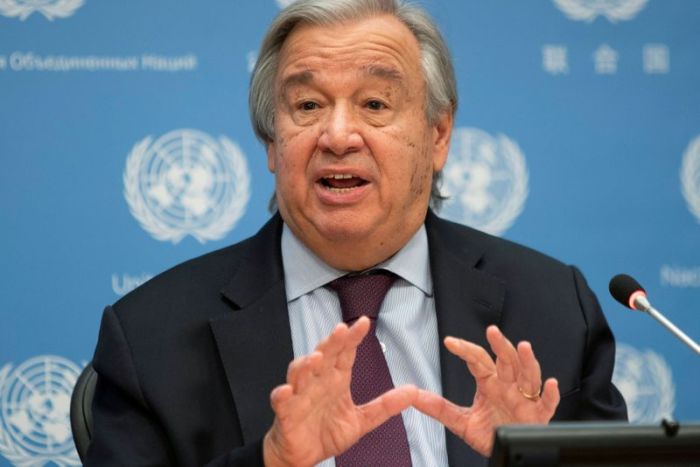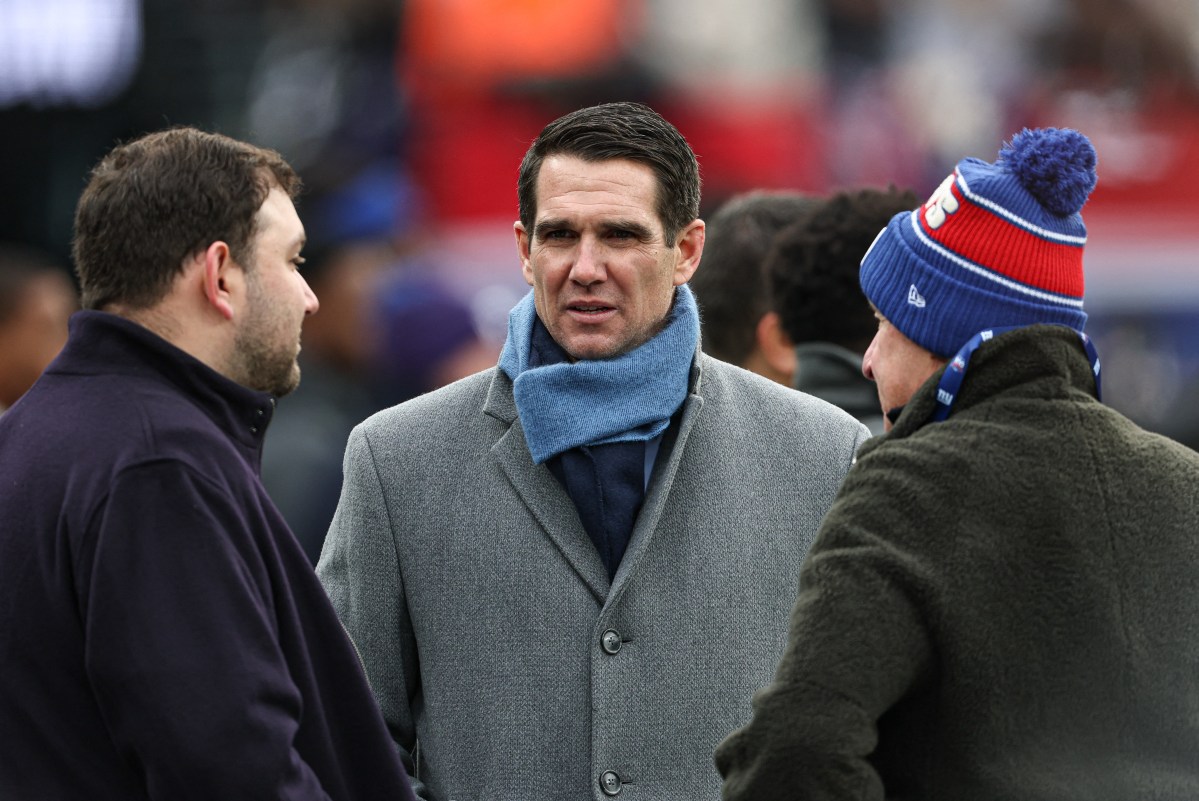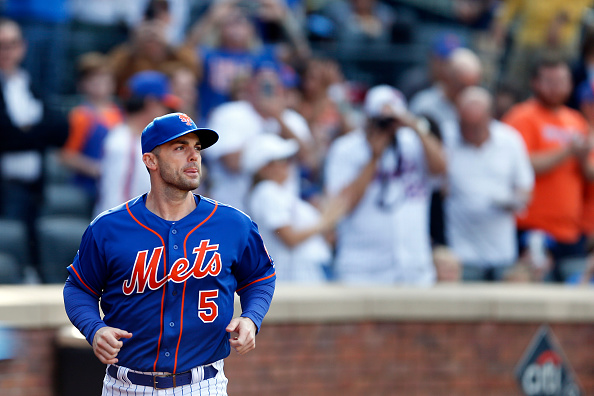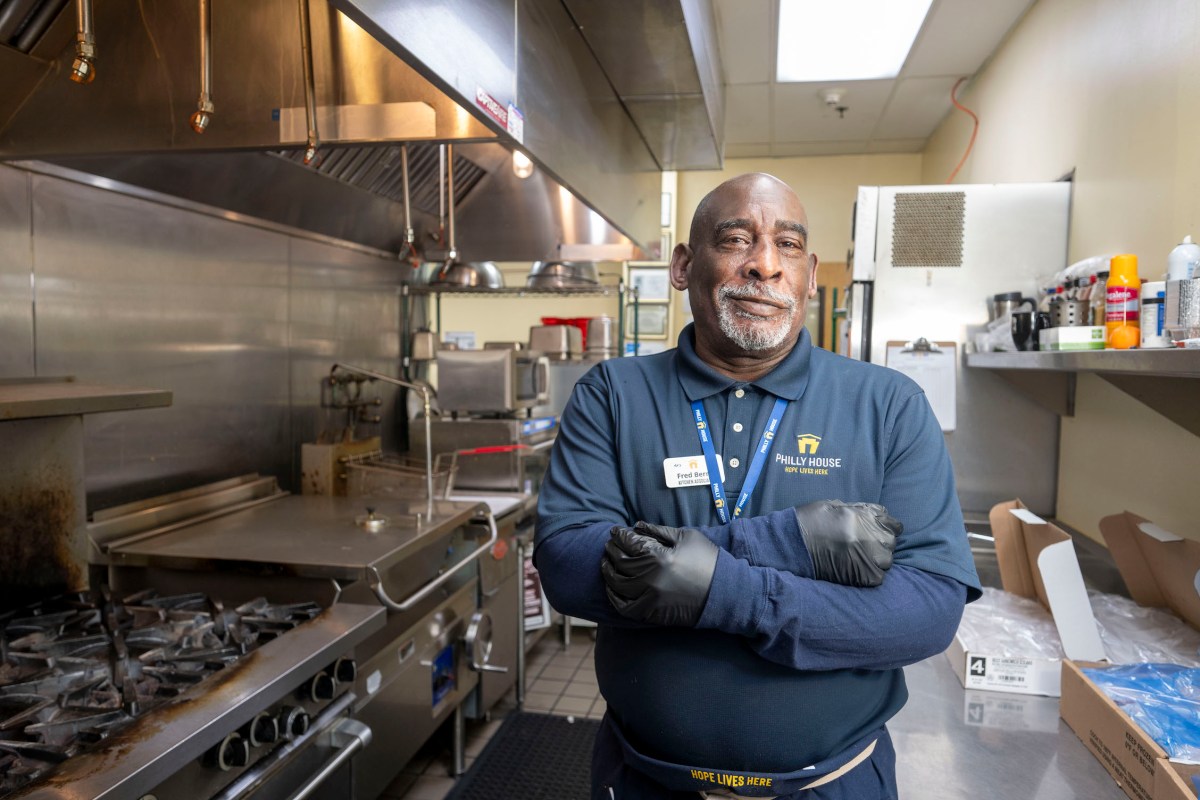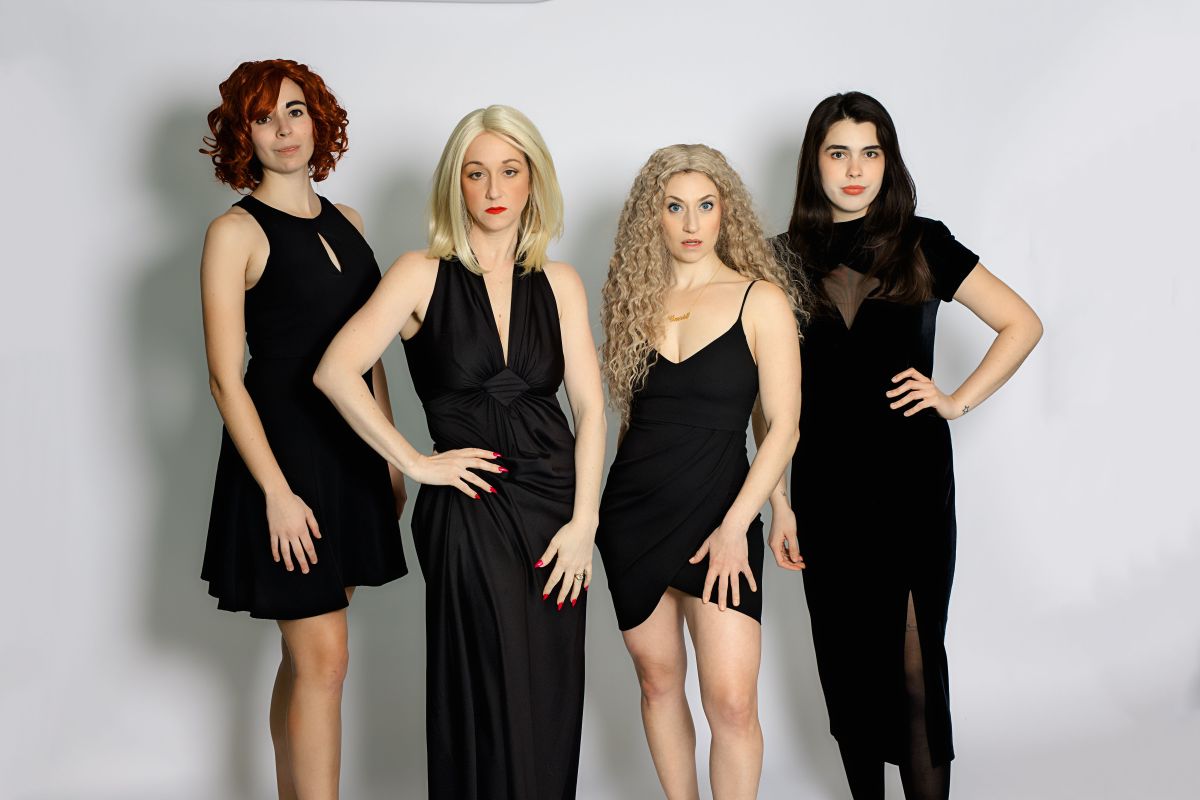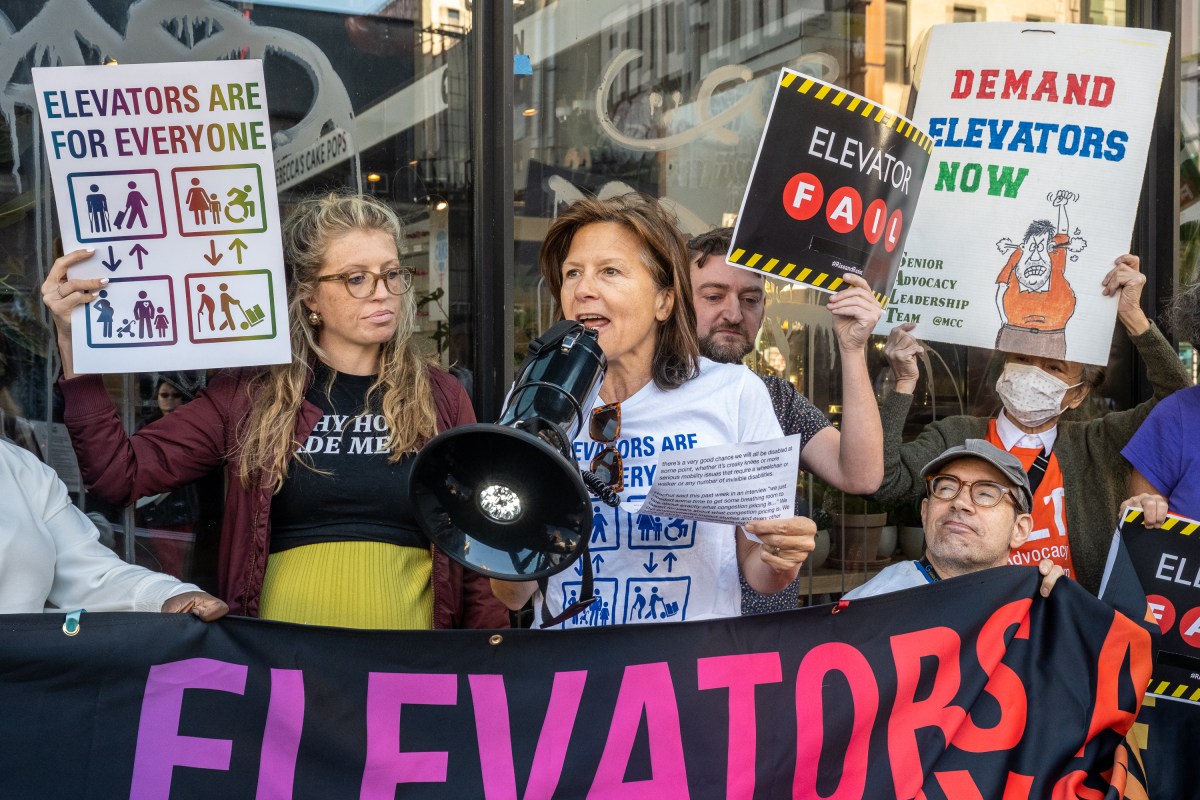ACCRA (Reuters) – With two old rivals facing off in Ghana’s presidential election on Dec. 7 amid familiar economic woes, many voters are paying more attention to a new element in the political mix – the first ever female vice-presidential candidate for a major party.
West Africa’s second-largest economy has one of the highest levels of women-owned businesses in the world, yet just 13% of parliamentary seats are held by women.
Former education minister Jane Naana Opoku-Agyeman hopes that the decision of Ghana’s main opposition National Democratic Congress (NDC) to nominate her as its candidate for vice-president will inspire other women to enter politics.
“Many are those who are now more energised to vote, thanks to the momentous decision,” Opoku-Agyeman, 69, said on the campaign trail in July after her nomination, promising to hold the door open for other women.
She and the NDC’s presidential candidate John Mahama, a former president of Ghana, are running against the incumbent, President Nana Akufo-Addo, and Vice-President Mahamudu Bawumia, a former banker, of the ruling New Patriotic Party (NPP).
Some commentators saw her nomination as a politically astute move by the NDC to gain an edge in the race, a view boosted by a poll conducted in October by Ghanaian market research firm MSI-ACI showing over 70% of people canvassed approved of her candidacy.
“It’s a win, regardless of whether she wins,” said 35-year-old tech entrepreneur Kafui Anson-Yevu. She and her friends in Accra hope the nomination is just a starting point for women entering national politics.
Three women are also among the 12 presidential candidates, although voters generally choose between the NPP and NDC, who have alternated in power since 1992.
IN SHADOW OF PANDEMIC
Ghana will also hold a parliamentary election on Dec. 7, but the main parties are fielding fewer female candidates this year than in 2016, so the number of women deputies is likely to fall, according to a report https://www.ndi.org/publications/ghana-2020-pre-election-press-release by U.S. pro-democracy groups.
Like other countries, Ghana, a major producer of oil, gold and cocoa, has seen its economy badly impacted by the coronavirus pandemic.
A strict lockdown in the spring was especially painful for the informal sector, which accounts for a third of national output and where women hold nine out of 10 jobs.
In the second quarter of this year, the economy contracted for the first time in nearly 40 years, though it is expected to grow 5.9% next year.
Both presidential candidates have promised more spending to help smooth the economic recovery.
The ruling NPP’s promises include a proposed rent support scheme, while Mahama has vowed to create 1 million jobs.
This is Akufo-Addo’s third head-to-head with Mahama, who narrowly won their first encounter in 2012 before losing to Akufo-Addo in 2016 by more than 9 percentage points.
Around 70% of Ghanaians approve of Akufo-Addo, according to a September-October poll of 2,400 citizens by the Ghana Centre for Democratic Development, a non-profit research group.
Voting intentions were not polled, but “there’s really some confidence that it is theirs to lose,” said Kojo Asante, a director at the centre, referring to Akufo-Addo’s NPP party.
Policy and campaign promises matter in elections in Ghana, where – unlike elsewhere in the region – ethnic alliances do not play a decisive political role.
(Additional reporting and writing by Alessandra Prentice; Editing by Edward McAllister and Gareth Jones)

